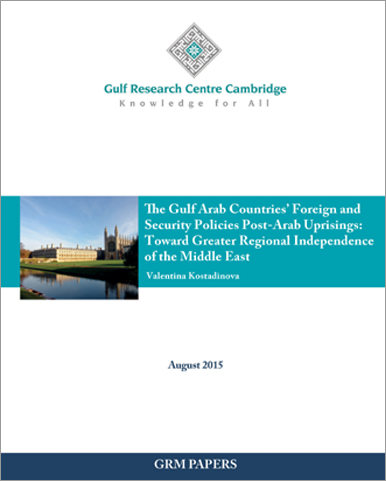The Gulf Arab Countries’ Foreign and Security Policies Post-Arab Uprisings: Toward Greater Regional Independence of the Middle East
Publisher: Gulf Research Centre Cambridge
Published year: 2015
GRM year: 6
This paper examines the Gulf Arab countries’ foreign and security policies in the immediate aftermath of the Arab uprisings (until mid-2014) and compares them to the policies of the US and the EU. Building on a detailed outline of the different facets of power and a comparison with the respective actor’s capabilities in the aftermath of World War I, it argues that, relatively speaking, the power of the Western actors has declined, while that of the Gulf Arab players has increased. The analysis lays out the factors that have contributed to this outcome. Analytically, the paper engages with the concept of power but starts from the perspective of the entities that experience the exercise of power. This allows the author to develop the investigation using traditional power measurements, while simultaneously avoiding a Western-centered viewpoint. Thus, a sense of agency for the Middle East and, more specifically, the Gulf Arab region is restored.
